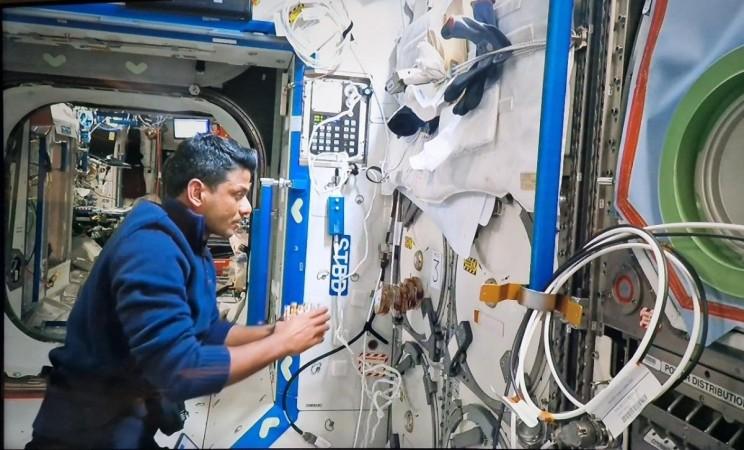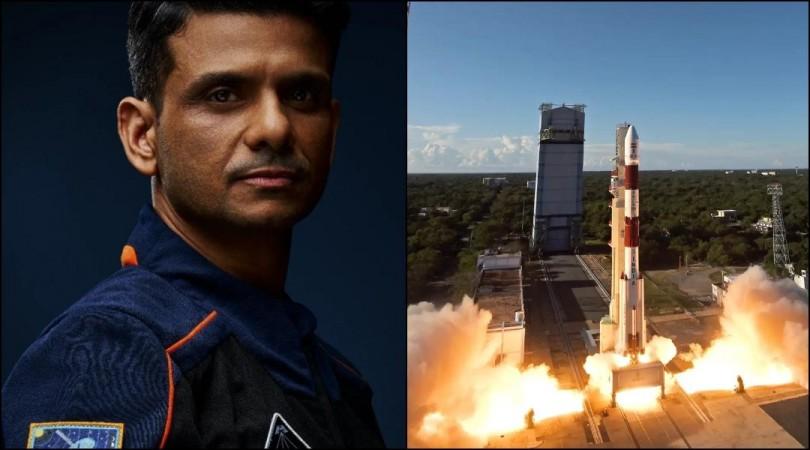
Indian astronaut Shubhanshu Shukla is set to return to Earth after a historic mission aboard the International Space Station (ISS). The Indian Space Research Organisation (ISRO) has confirmed that Shukla, along with crew members Peggy Whitson, Sławosz Uznański-Wiśniewski, and Tibor Kapu, will begin their journey back on July 14.
The SpaceX Dragon spacecraft is expected to splashdown near the coast of California, USA, on July 15, 2025, at 15:00 hrs IST. This mission marks a significant milestone as Shukla becomes the first Indian to visit the ISS and the second Indian astronaut to venture into space, following Wing Commander Rakesh Sharma's historic flight in 1984.
During his 14-day mission, Shukla has been actively involved in a series of microgravity experiments. These experiments, developed through collaboration between ISRO, the Department of Biotechnology (DBT), and NASA, aim to decode muscle loss, develop a brain-computer interface, and explore the sprouting of green gram and fenugreek seeds in space.
The successful completion of these experiments represents a significant leap in understanding the effects of microgravity on biological systems and holds promise for future space missions.

ISRO has reported that four of the seven planned experiments have been successfully completed. These include the study of the Indian strain of Tardigrades, focusing on their survival, revival, reproduction, and transcriptome; Myogenesis, which examines the impact of the space environment on human muscle cells; the sprouting of methi and moong seeds, relevant to crew nutrition; and the Cyanobacteria experiment, which studies the growth of two varieties with implications for life support systems.
Significance of the Mission
The knowledge gained from these experiments is expected to contribute significantly to India's Gaganyaan mission, the Bhartiya Antariksha Station, and future planetary missions. ISRO has emphasized that the completed microgravity experiments are being prepared for their journey back to Earth for further analysis, underscoring the importance of this mission in advancing India's space capabilities.
As Shukla and his crew prepare for their return, NASA has announced that the Ax-4 crew will finalize their science experiments, including an electrical muscle stimulation study, testing suit fabrics for thermal comfort during exercise, and filming crew activities for a behavioral health study.
The crew will also begin packing science gear filled with research samples and loading personal items and other cargo inside the SpaceX Dragon spacecraft for retrieval on Earth. Upon landing, Shukla and his fellow crew members will undergo a rehabilitation program under the supervision of flight surgeons to readjust to Earth's gravity. ISRO's flight surgeons have been continuously monitoring and ensuring the overall health and fitness of the Gaganyatri through participation in private medical and psychological conferences.
This mission is a testament to the collaborative efforts between NASA and ISRO, which have a long-standing relationship built on a shared vision to advance scientific knowledge and expand space collaboration. The Axiom Mission 4, which facilitated Shukla's journey to the ISS, was a result of a commitment highlighted by former President Trump and Indian Prime Minister Narendra Modi to send the first ISRO astronaut to the station.
The mission included five joint science investigations and two in-orbit science, technology, engineering, and mathematics demonstrations, further strengthening the ties between the two space agencies.
Historical Context and Future Implications
Historically, India's journey into space has been marked by significant achievements. The country's first astronaut, Rakesh Sharma, flew aboard the Soviet spacecraft Soyuz T-11 in 1984, becoming the first Indian to travel to space.
His mission was a source of national pride and laid the foundation for India's future space endeavors. Since then, ISRO has made remarkable strides in space technology, launching numerous satellites and missions, including the Chandrayaan and Mangalyaan missions, which have garnered international acclaim.
Shukla's mission to the ISS is a continuation of this legacy, showcasing India's growing capabilities in human spaceflight and its commitment to contributing to global space exploration efforts. As the world watches the return of Shubhanshu Shukla and his crew, the mission stands as a symbol of India's aspirations and achievements in the realm of space exploration.
The successful completion of this mission not only highlights the collaborative efforts between ISRO, NASA, and other international partners but also paves the way for future missions that will further expand our understanding of space and its potential for scientific discovery.
The knowledge and experience gained from this mission will undoubtedly contribute to the advancement of space science and technology, inspiring future generations of scientists and astronauts. As Shukla prepares to return to Earth, the mission's outcomes are expected to have far-reaching implications for India's space program and its role in international space exploration.
The experiments conducted during this mission are set to provide valuable insights into the effects of microgravity on biological systems, which could inform the development of life support systems and crew nutrition strategies for long-duration space missions.
Related









